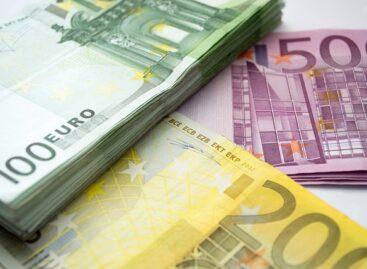Parliament saves food programme for the EU's most deprived citizens
The “Food for the needy” programme will continue to supply food to the EU's most deprived citizens for two more years, thanks to a rescue plan agreed with the Council and approved in plenary session on Wednesday. The programme, on which 18 million of the EU's poorest people in 20 Member States rely, will run until the end of 2013, with a budget of up to €500 million per year.
“The current economic crisis, together with difficult weather conditions, has had a severe impact on the poor. Nearly 18 million homeless, unemployed, elderly or handicapped people, but also large families and single parents, benefit from the programme today. It is good that the EU remembers them. But the most important task is to ensure that the programme will continue to provide food to poor and needy EU citizens also after 2014”, said Parliament's rapporteur Czesław Adam Siekierski (EPP, PL).
“Keeping the programme on track with proper funding until the end of 2013 is an important achievement”, said Agriculture Committee chair, Paolo de Castro (S&D, IT), “but this is not the end of the story. We will keep up our political pressure to make sure that the EU continues to show solidarity to the weakest of our society also beyond 2013, especially so in the times of severe economic crisis”.
The new rules, approved by the Parliament without a vote, will apply retroactively from 1 January 2012, enabling the programme to continue until the end of 2013, with a budget ceiling of €500 million per year.
Background
The scheme for distributing free food to the EU's most deprived citizens, set up in 1987 under the Common Agricultural Policy (CAP), currently provides food aid for 18 million people living in poverty in 20 EU Member States.
The free food originally came from CAP intervention stocks, but as these were reduced, the scheme came increasingly to rely on market purchases, just as the global economic crisis caused a sharp increase in the number of citizens in need.
However, in April 2011 the EU Court of Justice ruled that the scheme could only use food from intervention stocks. If no action were taken, funding for the scheme would have to be reduced to €133 million in 2012, from €500 million in 2011.
To avoid a sharp cutback in food aid at a time when the number of needy EU citizens is rising, Parliament called in a July 2011 resolution for a transitional solution to save the scheme.
A proposed update of the regulation, which would make it possible for the scheme to purchase food on the market, had remained blocked in the Council until November 2011, when Germany agreed to back the scheme's continuation, with proper funding, until the end of 2013.
Related news
Related news
MBH quick analysis: Tourism will continue to soar this year
🎧 Hallgasd a cikket: Lejátszás Szünet Folytatás Leállítás Nyelv: Auto…
Read more >A stable compass in the Hungarian FMCG sector for 20 years
🎧 Hallgasd a cikket: Lejátszás Szünet Folytatás Leállítás Nyelv: Auto…
Read more >Half of employees do not support salary transparency
🎧 Hallgasd a cikket: Lejátszás Szünet Folytatás Leállítás Nyelv: Auto…
Read more >




